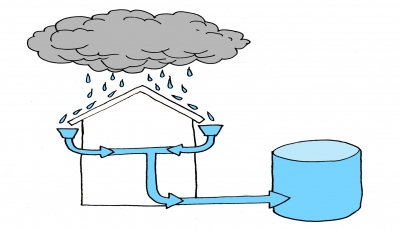Exploring the Relevance of Reclaim Waste in Sustainable Waste Administration Campaigns
In the world of lasting waste management, the concept of reclaiming waste arises as a crucial element that demands focus and factor to consider. As we navigate the intricacies of contemporary waste disposal practices, the value of redeeming waste reveals a nuanced approach to mitigating ecological impact and cultivating a much more sustainable future. By examining the intricate interaction between waste reclamation and lasting waste management campaigns, we start to unravel a story that extends past traditional waste disposal approaches. Through a lens that focuses on resource performance and environmental preservation, reclaiming waste uses a compelling avenue for resolving pressing ecological difficulties while leading the way for ingenious options in the world of waste monitoring.
Value of Reclaiming Waste
Why is redeeming waste essential in lasting waste monitoring practices? Recovering waste plays an important duty in sustainable waste monitoring by reducing the amount of waste sent to landfills, conserving natural deposits, and lessening ecological impact. By recovering waste materials via repurposing, recycling, or upcycling, important resources can be recouped and reestablished into the production cycle, reducing the need for virgin products. This not just lowers the strain on natural deposits but likewise assists in minimizing power consumption and greenhouse gas emissions connected with the removal and processing of basic materials.
In addition, redeeming waste fosters a circular economic situation where products are recycled and recycled constantly, advertising a more lasting and reliable use of sources. It also adds to the development of environment-friendly jobs and financial development in the recycling and waste administration field. By incorporating waste improvement practices right into waste monitoring neighborhoods, businesses and strategies can relocate towards an extra lasting future, where waste is checked out not as a concern however as a beneficial resource.
Benefits for the Environment
In the realm of sustainable waste administration, the technique of reclaiming waste not only lowers and conserves all-natural sources waste sent out to garbage dumps but likewise yields considerable benefits for the atmosphere. By recovering waste materials, such as metals, glass, plastics, and organic matter, the ecological influence of resource removal and production is minimized (Reclaim Waste Melbourne). This results in decreased power consumption, minimized greenhouse gas emissions, and reduced levels of air and water contamination related to removing basic materials
In addition, redeeming waste helps in the preservation of biodiversity and all-natural habitats. It lowers the need for land fill area, thereby minimizing land deterioration and habitat destruction. Additionally, the procedure of reclaiming waste often entails recycling and repurposing materials, which subsequently lowers the demand for brand-new products and the linked power and resources needed for their manufacturing.
Contribution to Circular Economic Climate
Playing a critical duty in fostering sustainability and source effectiveness, recovering waste makes a considerable payment to the round economic situation. By reintroducing thrown out materials back right into the production cycle, recovering waste reduces the requirement for virgin resources, thus decreasing the general ecological impact of resource removal and intake. This process straightens with the principles of the round economic situation, which stresses making the most of the worth and utility of resources through closed-loop systems.
As an outcome, redeeming waste aids to produce a more sustainable and resilient economic climate that is less reliant on limited resources and susceptible to disruptions in the supply chain. Inevitably, by incorporating waste improvement techniques right into waste monitoring initiatives, services and areas can proactively add to constructing an extra regenerative and circular economic situation.
Minimizing Land Fill Waste

Education and recognition campaigns on appropriate waste disposal and the importance of minimizing, recycling, and recycling can additionally play a vital role in lowering garbage dump waste. By prioritizing the reduction of garbage dump waste, sustainable waste monitoring techniques can be boosted, leading to a healthier environment and economy.

Future Implications
Thinking about the rapid improvements in innovation and progressing environmental challenges, the future implications of lasting waste monitoring are poised to transform existing practices. The fostering of cutting-edge innovations such as expert system, Web of Things (IoT), and blockchain can considerably improve waste surveillance, arranging, and recycling procedures. These improvements enable real-time tracking of waste streams, recognition of recyclable materials, and enhanced performance in resource allowance.
Furthermore, the change in the direction of a round economy model, where resources are reused, recycled, or upcycled, will certainly end up being progressively common. This shift not just reduces the dependence on virgin products yet also reduces waste generation, leading to an extra environmentally friendly and sustainable waste monitoring strategy.
In addition, the integration of lasting waste management techniques into wider sustainability agendas is expected to acquire grip. Liquid waste removal. Organizations and federal governments worldwide are acknowledging the significance of waste decrease and recycling in combating environment modification and advertising a circular economic climate. Consequently, guidelines and plans supporting lasting waste management efforts are most likely to end up being more rigid, driving sectors towards more environment-friendly practices
Conclusion
Finally, the relevance of recovering waste in sustainable waste administration initiatives can not be overstated. By redeeming waste, we can decrease ecological effect, add to a round economic situation, and lessen land fill waste. This technique holds pledge for future implications in waste administration methods, highlighting the importance of source performance and environmental sustainability. Recovering waste is an important step towards producing a much more eco friendly and lasting future.
By checking out the complex interplay between waste improvement and sustainable waste management efforts, we begin to decipher a narrative that extends beyond traditional waste disposal methods. Reclaiming waste plays an essential duty in lasting waste monitoring by minimizing the amount of waste sent out to land fills, conserving natural sources, and reducing environmental effect. By incorporating waste reclamation practices into waste monitoring techniques, businesses and areas can move in the direction of a much more sustainable future, where waste is checked out not as a worry but as a valuable resource.
